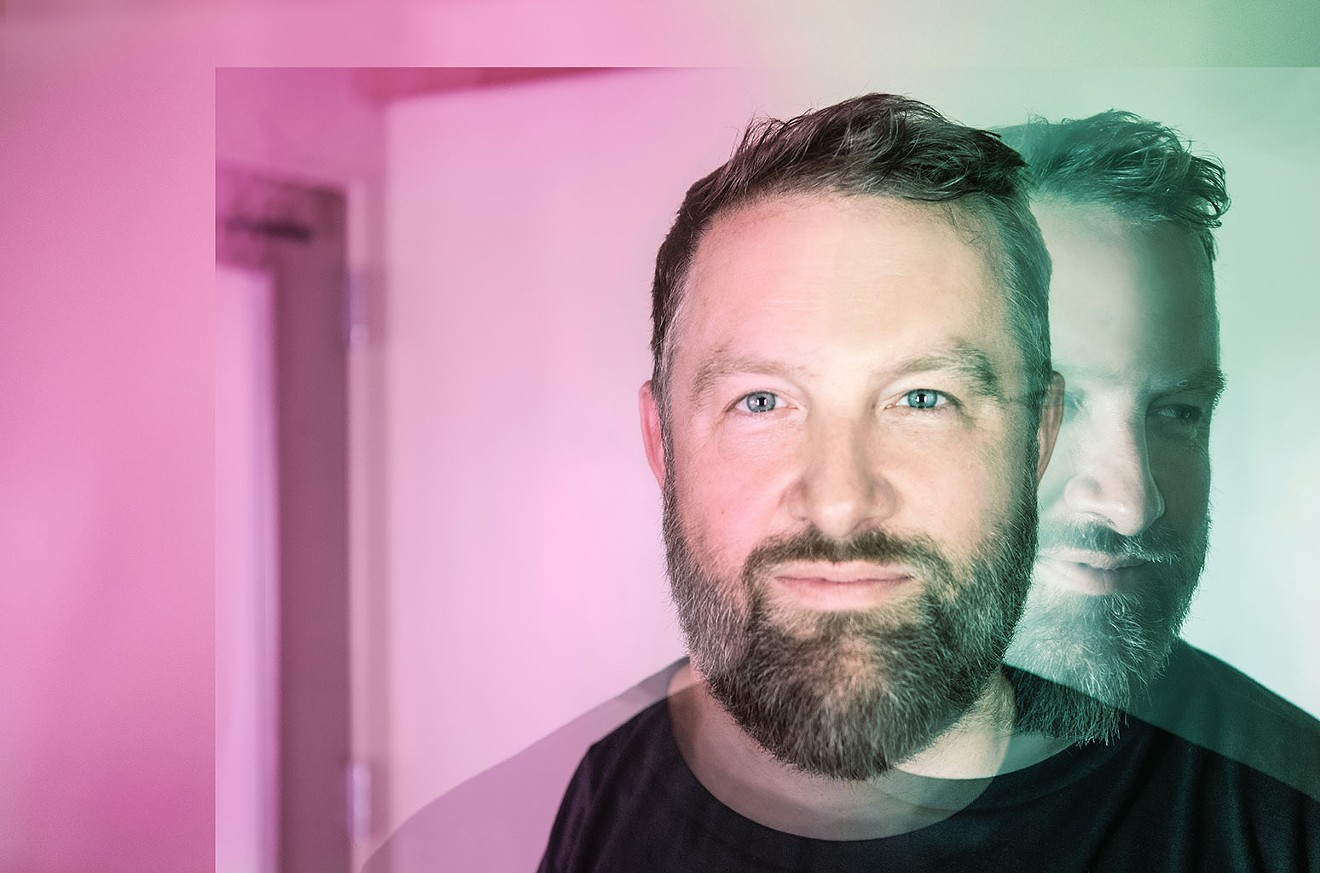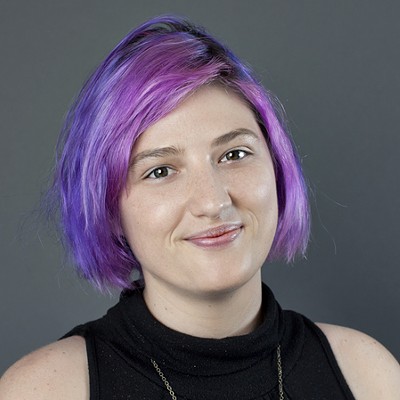Dirtybird Records' name evokes a whole sound of its own: As a chief proponent of ghettotech and tech-house, the San Francisco-based label's discography has come to be regarded by some as a musical genre unto itself. Over the last 15 years, the dance music imprint has built up a body of work that's won the admiration of underground tastemakers as well as famously devoted fans the world over. Until recent global events shattered the social paradigm, it wasn't all that uncommon to spot Dirtybird apparel and tattoos at club outings or music festivals.
Miami has a special relationship with the label: Founder and figurehead Barclay Crenshaw, often known as Claude VonStroke when behind the decks, considers the city Dirtybird's home away from home. While this year's annual Miami Music Week getdown at Club Space was canceled due to the novel coronavirus, Crenshaw is celebrating the label's milestone anniversary with the Dirtybird Miami 2020 compilation, which he curated himself.
“It's weird releasing a Miami compilation on Dirtybird and then not going to Miami,” he says. “We had such huge plans for our 15th birthday, but in a way, maybe everyone can take a breath and figure out some stuff in their lives.”
It's no surprise Crenshaw would continue moving forward and share new music at a time like this; after all, Dirtybird only survived because of his obsessive determination.
The label's story starts in 2000, when Crenshaw was heading up a separate imprint called Rook Records. He'd been working as a DJ and producer in the jungle and hip-hop scenes for years, but with minimal success. In 2000, he turned his attention to making a documentary called Intellect: Techno House Progressive. Although it's not readily available in the streaming era, you can still buy it on DVD at Amazon.
“I was making this documentary because I hadn't been able to crack into any [musical] acceptance," he says, noting he felt compelled to interview "all the most famous house DJs to find out what you have to do to crack into the industry.”
“It was all the top house DJs of 2000," he adds. "Most everyone just said work your ass off.”
Crenshaw says a lot of the advice was “super obvious” and included gems like “Be original” and “You have to believe in it 100 percent.” Some of it proved enlightening, like the fact that a vinyl distributor won't pay you until your fourth record because they're betting you'll go out of business.
It took Crenshaw two years to finish the doc, but once he did, he incorporated the advice into his own life. He saved enough money for at least four records, quit his day job, and went full in on making his dream record label a reality.
“My wife gave me the best opportunity anyone's ever given me,” he shares. “She had a really nice job and said she'd pay the rent for a year, and I could just only do the record label. She was like, 'If you can make this much money doing it, then you can just do it forever.'”
Committed to his task, he brainstormed with his buddies at a local bar. Dirtybird OGs and beat-making brothers Justin and Christian Martin happened to be bartenders there; original Dirtybird BBQ chef Chris Wilson was another regular.
All of them were there the day Crenshaw started doodling.
“I always drew this bird character since like sixth or seventh grade,” he recounts. “I just drew the character on a napkin while we were sitting there and someone said, 'Dirtybird.' Instantly, I just knew that was so much better [a name] than Rook Records, and then I was like 'Oh, and there's the logo right there.'”
The newly named Dirtybirds started a free BBQ jam in Golden Gate Park every Sunday. Christian Martin bought the speakers, Wilson got behind the grill, and the whole crew dropped sonic bombs, refining what would become the label's signature sound.
“The party was going before there were actual physical releases,” Crenshaw says. “Justin Martin was the first person to — I hate to say 'take it seriously.' He's not very serious, but he was the first person to have serious interest from other people.'”
In 2003, Ben Watt of Everything but the Girl fame signed Justin Martin's tune “The Sad Piano” for international release. As it happens, Justin had just learned how to use digital audio software that year, while Crenshaw had been making tunes for 12 turns around the sun.
The success got the group thinking: If Justin could get signed to Watt's label, maybe they could release their own heavy house records independently.
“The label was made for Justin Martin,” Crenshaw says, adding Dirtybird's success was buoyed by the popularity of "Deep Throat," a production of his own. "['Deep Throat'] did so unbelievably well, it was like, 'OK, there's room for everybody.'”
After the group passed the four-record breaking point, tunes from J. Phlip, Sammy D, and Worthy helped solidify the funky, club-oriented style that's continued to define the label's identity. DJ/producer Jesse Rose eventually contacted Crenshaw out of the U.K. He said Switch, Herve, and other pioneers behind the late 2000s fidget house sound were really digging what Dirtybird offered. Simultaneously, underground techno heroes like Richie Hawtin and Damian Lazarus began regularly dropping Claude VonStroke cuts “Who's Afraid of Detroit” and “Aundy.”
The international attention empowered Crenshaw to bring the Dirtybird gospel to Ibiza and Berlin. Meanwhile, his San Francisco counterparts continued to hold it down at dance floors across the U.S.
“If one person believes in something, it's maybe just a blip,” he says, “But if there's three to four people that all understand the point, [it's seen as a movement].”
Burgeoning international success aside, Crenshaw says the label was in “survival mode” until 2010. Small victories, like the sales behind “Deep Throat,” kept the label afloat.
“'Deep Throat' sold like 12,000 [copies on] vinyl, which literally kept us open from 2005 all the way through 2006,” he says. “Because that record does that number of vinyl, the next five records have orders of automatic orders of 2,500 or more. I can't even believe I can remember this stuff, but those things actually mattered.”
By 2011, Claude VonStroke and Dirtybird Records had become electronic hipster royalty. Crenshaw's Fact 101 mix made the rounds, and the label started turning profits. Tunes like “Beat That Bird,” “Big N Round,” and Ardalan's breakout “Mr. Spock” cocked heads all over the world. Good times were here again, but Dirtybird's initial era of triumph wasn't to last.
“Dirtybird BBQ got kicked out of Golden Gate Park because someone graffitied on a park bench,” Crenshaw says. “It was completely inevitable, because we were announcing and then the same day 2,500 kids show up... That's the growing-up phase of the record label, like 'Oh, we can't just do whatever we want. It's too big. We actually have to become a real company, and figure out how to do parties with permits and staff and charge ticket price.'”
That's when Miami materialized into view. In 2012, Dirtybird held its first BBQ outside of San Francisco at the now-defunct Villa 221's outdoor space. The vibe was decidedly intimate: You could chat with the Dirtybird Players while noshing on a freshly grilled cheeseburger, or bootyclap as sounds were spun by fresh signees Eats Everything and Catz 'N Dogz. There was even a performance by Phife Dawg, the late and much-missed MC of A Tribe Called Quest fame.
“I always thought [Miami was] a safe place for us to try this,” Crenshaw says. Even though he began organizing Dirtybird BBQ events in Miami annually, they weren't without challenges.
"We had some serious disasters go down," he says. "The permitting stuff used to be impossible in Miami. There was just a point where I was like, 'We're going indoors because outdoor things drive me crazy.' I'd just rather go into Space and just be done with it.”
The outdoor party concept lives on in Dirtybird Campout. Launched in 2015, the weekend-long festival brings fans and DJs together at a proper campsite to play music, face off in tugs-of-war, row canoes, and other wholesome activities.
“It's my ultimate brain baby,” Crenshaw says. “It was another huge leap of faith to the point where everyone at my booking agency was like, 'Are you fucking crazy?' I literally made a flyer with a beautiful picture of a lake and a campground and a tent, and it said 'Dirtybird Campout: All your favorite DJs in the world.'”
The announcement of the Dirtybird Campout's initial outing got 405,000 responses on social media, more than any post in the label's history. The only problem? He had no permits, no space, and no team to make it real.
“I got a phone call from the Do Lab who had just canceled something they were planning,” he laughs. “I had asked them originally and they said no. Then they're like, 'Hey, we just became free. Who's doing this?' I literally said, 'You are. Thank you for calling.'”
The whole Campout came together in under six months. Crenshaw admits he cried when it was over. He's just as emotional about Dirtybird's 15th-anniversary milestone, and he's put way more than one compilation together to mark the occasion. Unfortunately, it's arrived at a moment when no human alive isn't facing coronavirus-caused disappointment; besides the canceled Miami gig, the usual BBQ tour has been postponed.
However, with everyone trapped in quarantine for the foreseeable future, fans looking to get their Dirtybird fix can peep the YouTube miniseries filmed and directed by Crenshaw's sister chronicling the creation and release of his latest studio album, Freaks & Beaks.
The LP features lots of Dirtybird Players and pushes the boundaries of the label's sometimes surrealist sound. It reminds Crenshaw of his and the label's early days, when music was a little less serious.
“I wanted [Freaks & Beaks] to be a message to everyone,” he says. “This is what you're allowed to do: You don't have to make these very specific tracks that you think sound like Dirtybird. The demos get narrower or narrower every year, and I'm trying to open it. It doesn't have to just be tech house bangers.”
Both audio exploration and bangers abound on the Dirtybird Miami 2020 comp: There are tracks from Lubelski, Mark Starr, Ghettoblaster, Plus Size Models, and more, each as strange and bumpin' as the last.
Dance floor freaks can't all unite under Dirtybird's freak flag until things become safer, but we can celebrate solidarity over how much Miami Music Week and electronic music gatherings are missed right now through the compilation.
“This will be my first year not going to Miami since 1999,” Crenshaw says. “I will miss it, and I hope I'm back very soon.”
[
{
"name": "Air - MediumRectangle - Inline Content - Mobile Display Size",
"component": "19274298",
"insertPoint": "2",
"requiredCountToDisplay": "2"
},{
"name": "Editor Picks",
"component": "17482312",
"insertPoint": "4",
"requiredCountToDisplay": "1"
},{
"name": "Inline Links",
"component": "18711090",
"insertPoint": "8th",
"startingPoint": 8,
"requiredCountToDisplay": "7",
"maxInsertions": 25
},{
"name": "Air - MediumRectangle - Combo - Inline Content",
"component": "17482310",
"insertPoint": "8th",
"startingPoint": 8,
"requiredCountToDisplay": "7",
"maxInsertions": 25
},{
"name": "Inline Links",
"component": "18711090",
"insertPoint": "8th",
"startingPoint": 12,
"requiredCountToDisplay": "11",
"maxInsertions": 25
},{
"name": "Air - Leaderboard Tower - Combo - Inline Content",
"component": "17482313",
"insertPoint": "8th",
"startingPoint": 12,
"requiredCountToDisplay": "11",
"maxInsertions": 25
}
]












